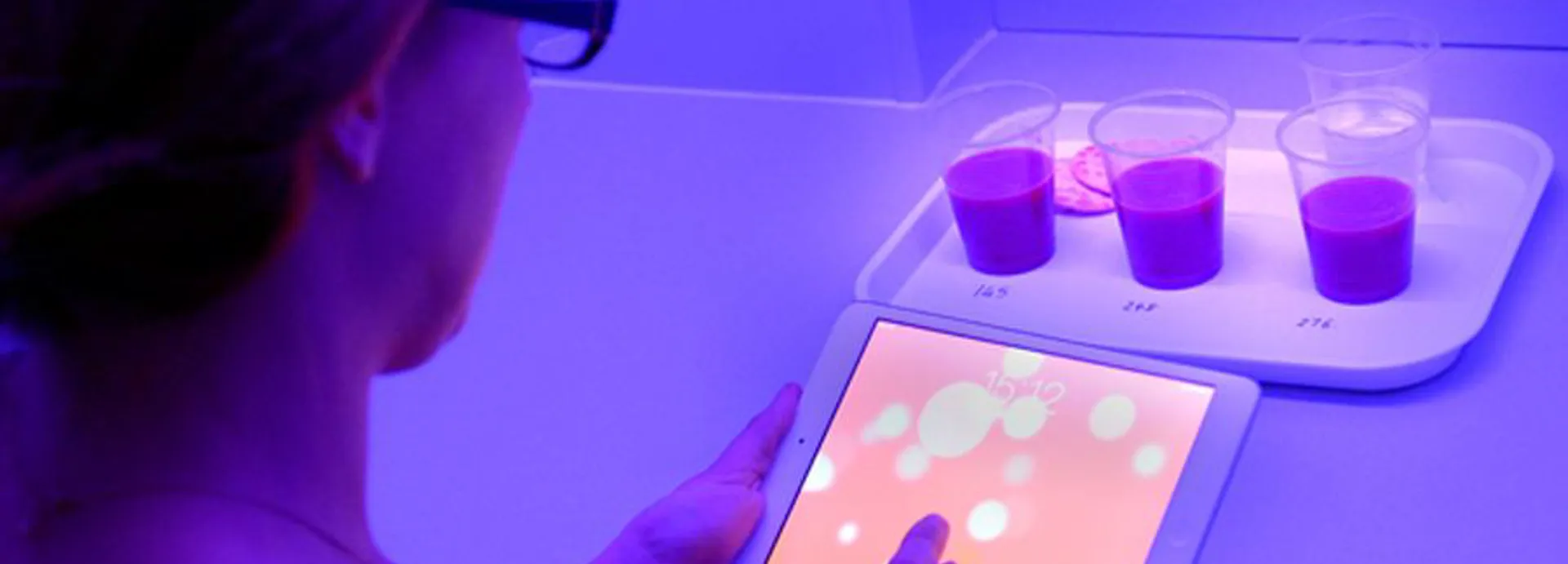February 2015
UCB unveils £2m centre to train top food industry talent
Read time: approx 1 mins
University College Birmingham has unveiled a new £2 million high-tech food hub to train the next generation of industry professionals.
The ground-breaking Food Science and Innovation Suite features the latest food testing and diagnostic technology alongside state-of-the-art kitchen facilities.
The 9,000 sq ft suite will be used by students on existing food courses and chef programmes in addition to undergraduates taking a raft of new degrees that link the culinary arts with food science, nutrition and food manufacturing. UCB’s new courses include Applied Food and Nutrition (BSc), Food Development and Innovation (BSc), Culinary Science (BSc) and Bakery and Confectionery Technology (FdSc).
The new facilities and degrees have been developed in response to industry demands for multi-skilled graduates in the specialist fields of product development, food technology, menu development and nutrition.
Aspiring professional chefs will acquire sought after food science expertise in addition to their traditional cookery-based training during their degrees.
The cost of the Food Science and Innovation Suite, situated at UCB’s main campus in Summer Row, has been funded by the University with financial support from the Greater Birmingham & Solihull Local Enterprise Partnership via the Local Growth Fund. The multi-functional and flexible facility highlights UCB’s commitment to course innovation, improving the student experience and ensuring graduate skills match employers’ needs throughout the food and hospitality industry.
The suite consists of a series of thematic learning spaces including Create It, Innovate It, Analyse It and Evaluate It. There is a sensory laboratory for food tasting, a pilot plant with manufacturing equipment used in commercial food production and a media suite for photography, filming and food styling.
The bespoke development kitchens and laboratories will be used for a range of work-based practices such as food product design, analysis, testing, research and demonstrations.
Create It, one of the suite’s two flagship kitchens, will be used to develop new concepts for the food manufacturing industry. The room, with its distinctive blue granite work tops, houses four identical student cooking stations comprising commercial-grade induction ranges, electric ovens and bain maries. There is a larger lecturer workstation for class demonstrations and a multi-functional, high-specification Unox combination oven features a prover for bread and bakery products.
Student will be encouraged to develop the commercial application of new products in Innovate It. This large, flexible space can be sub-divided to provide a meeting room in which students can mind-map ideas before they bring them to life in the adjoining kitchen.
Innovate It, which has a stunning red granite colour theme, is fitted with the latest gas stoves, electric stoves and induction hobs for product testing. There is also an Aga for assessing how products cope with traditional cooking techniques.
A sensory laboratory features eight self-contained booths for food tasting. Tasters will be presented with students’ dishes via hatches that lead off a central food preparation area. The brightness of the lighting within the booths, and the colour of the lighting, can be altered to gauge the effects of visual stimuli on taste and flavour perception. So, does a strawberry jelly still taste of strawberry when the red dessert is bathed in an icy blue light?
Sound can be piped into the booths to see if different styles of music affect the eating experience, taste and food appreciation.
Analyse It is the name for the new food science laboratory and it is here that disciplines such as nutrition, food safety and food hygiene come under the spotlight. Tests can be conducted on the fat, protein and moisture content of different foods and a DSC differential scanner analyses the crystal formations within chocolate, which is important information for the tempering process.
Evaluate It is a new quality assurance laboratory for studying the physical properties of food, such as texture, thickness and elasticity. The equipment will help students understand ingredient performance and the shelf-life of food products, with particular applications for the bakery and confectionery industries.
The pilot plant will be used to learn and practise food development processes and preservation techniques. Food photography, food styling and demonstrations will take place in the media suite. Other UCB courses with photographic applications, such as Specialist Hair and Media Makeup, will also use the suite.
The new facilities put the University at the cutting-edge of higher level commercial food and professional cookery developments and training. The food industry has very creative chefs and very good scientists, but it needs professionals who can link the two areas. The new Food Science and Innovation Suite at UCB will provide first-class opportunities to gain the skills and expertise required to flourish in this growing area of the industry. We constantly examine and refresh our courses to ensure our graduates meet the exacting demands of industry. Our degrees lead to a variety of career paths including process development technologists, quality assurance, culinary scientists, development chefs and food product developers.
The new Food Science and Innovation Suite will ensure we remain at the forefront of vocational education and training in food-related disciplines. The facilities and our new food degree courses have been designed with industry in mind. They represent a major investment in the training of both young people and those already employed seeking professional development. By providing our graduates with complementary skill sets, drawing on culinary disciplines and the latest food science knowledge, we are confident they will be well equipped to drive innovation and productivity in the global food industry.
